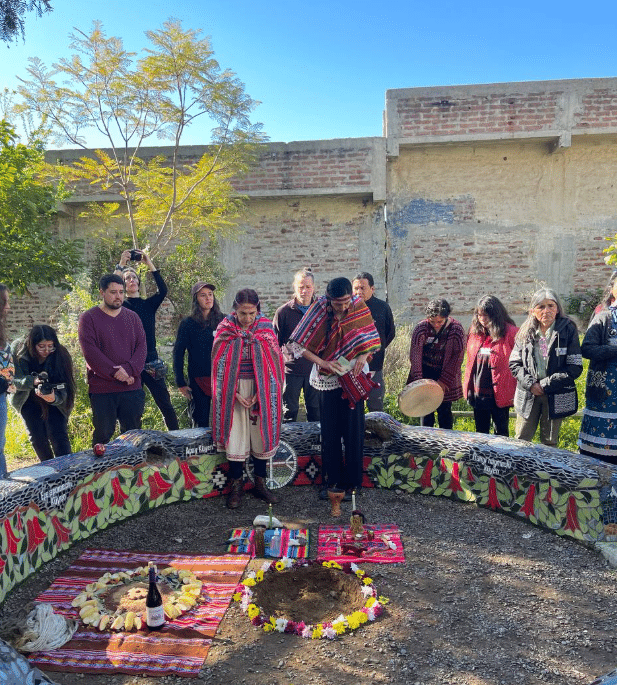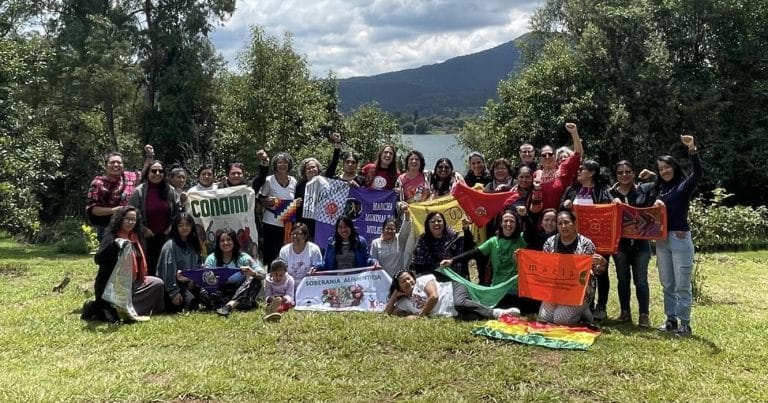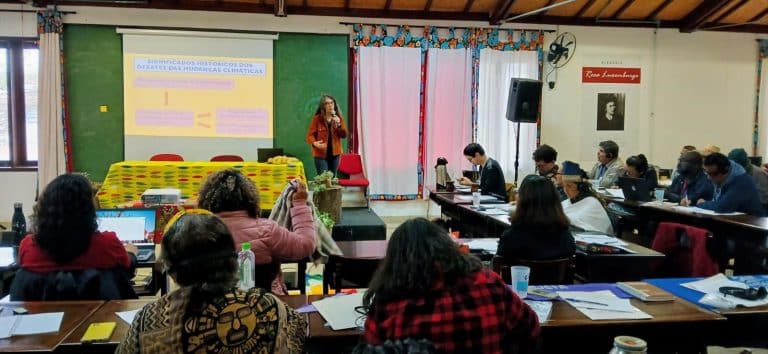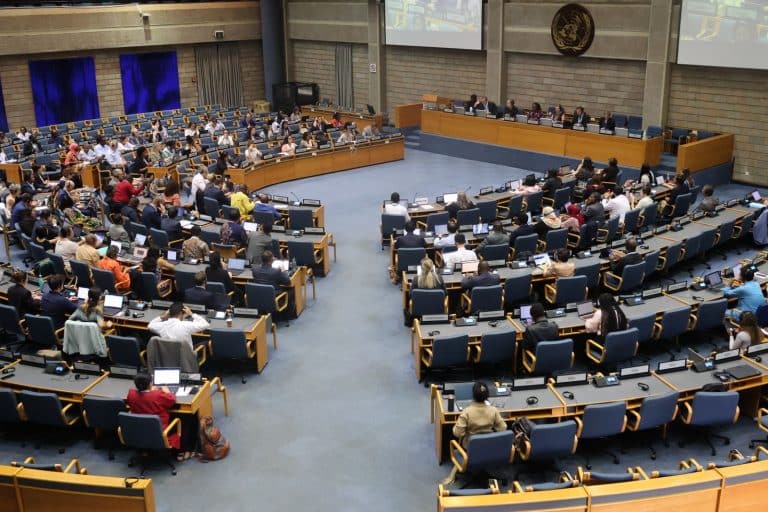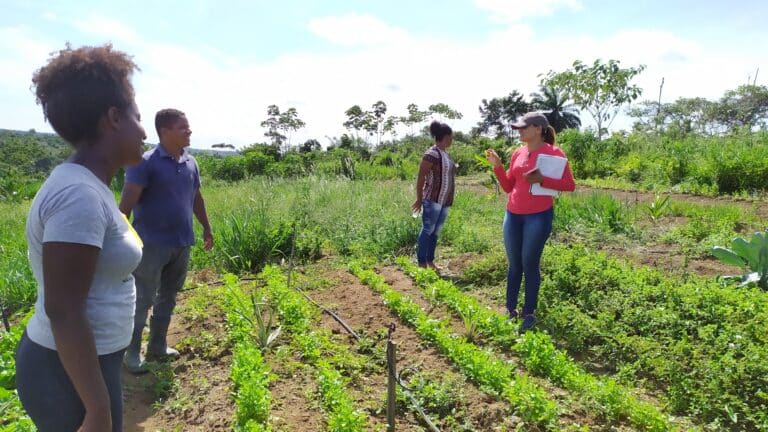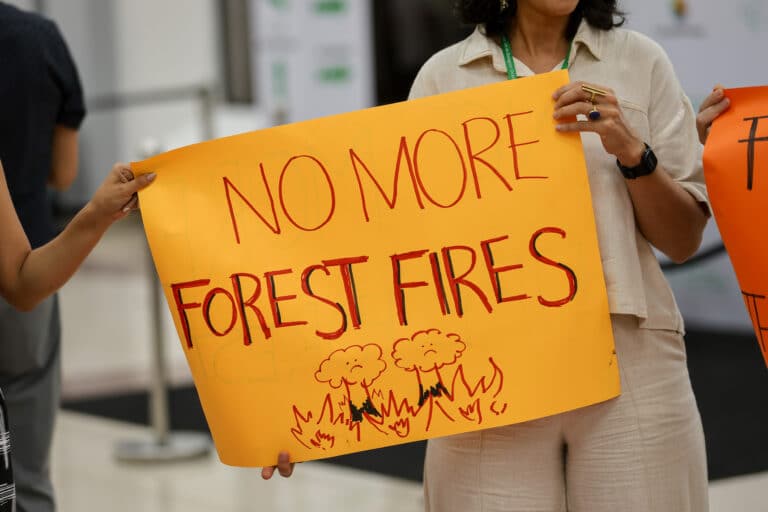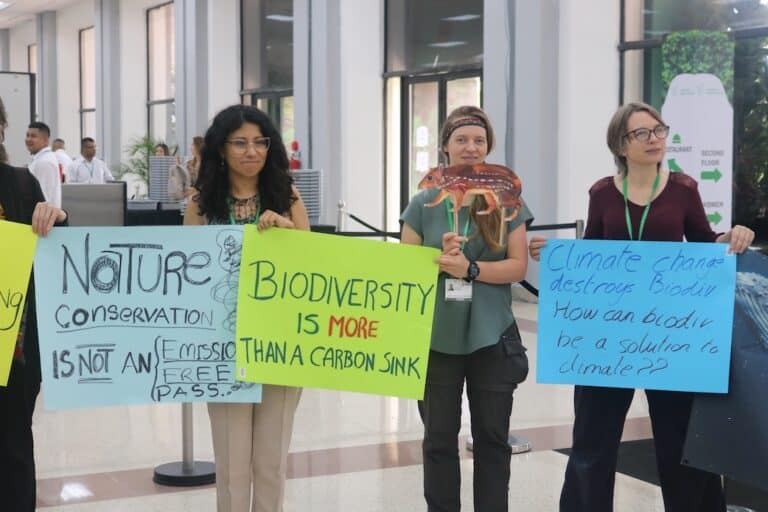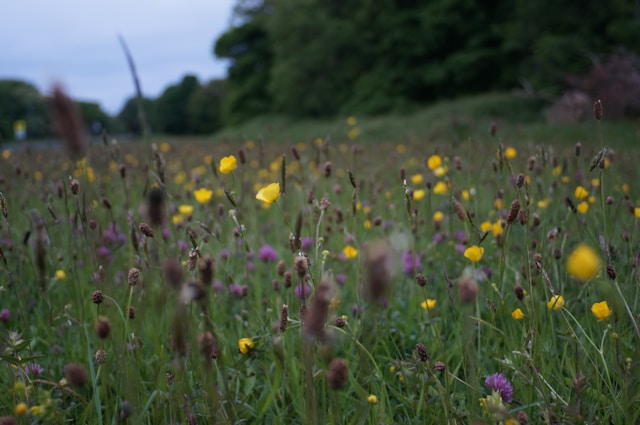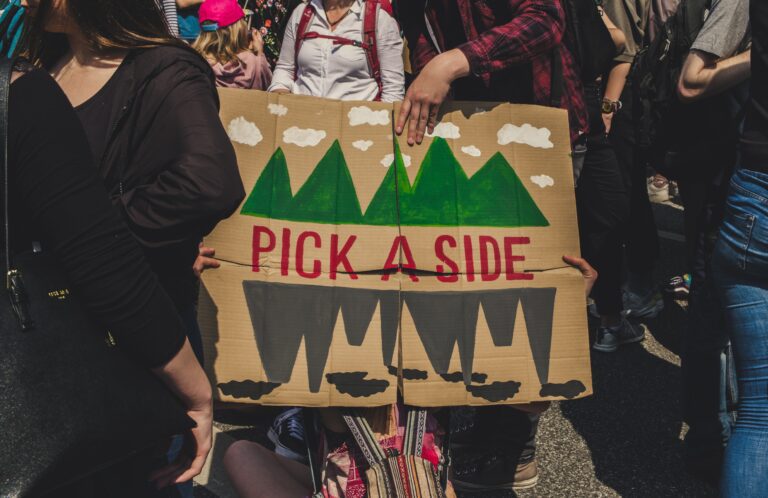Gender Justice & Forests
Forest loss threatens ecosystems and the lives, livelihoods, and traditions of many communities, disproportionately impacting women in all their diversity, Indigenous Peoples, and Afro-descendant and rural communities. It deepens gender inequalities, increases women’s burden of labour, and limits their access to resources and decision-making power.
Our Gender Justice and Forests Campaign promotes decolonial, feminist approaches to forest conservation that centre the rights, knowledge, and leadership of women in all their diversity. We work with our members to dismantle intersecting systems of oppression, reduce gender gaps, and ensure inclusive, community-led forest governance that values care, equity, and collective power as essential to climate and environmental justice.
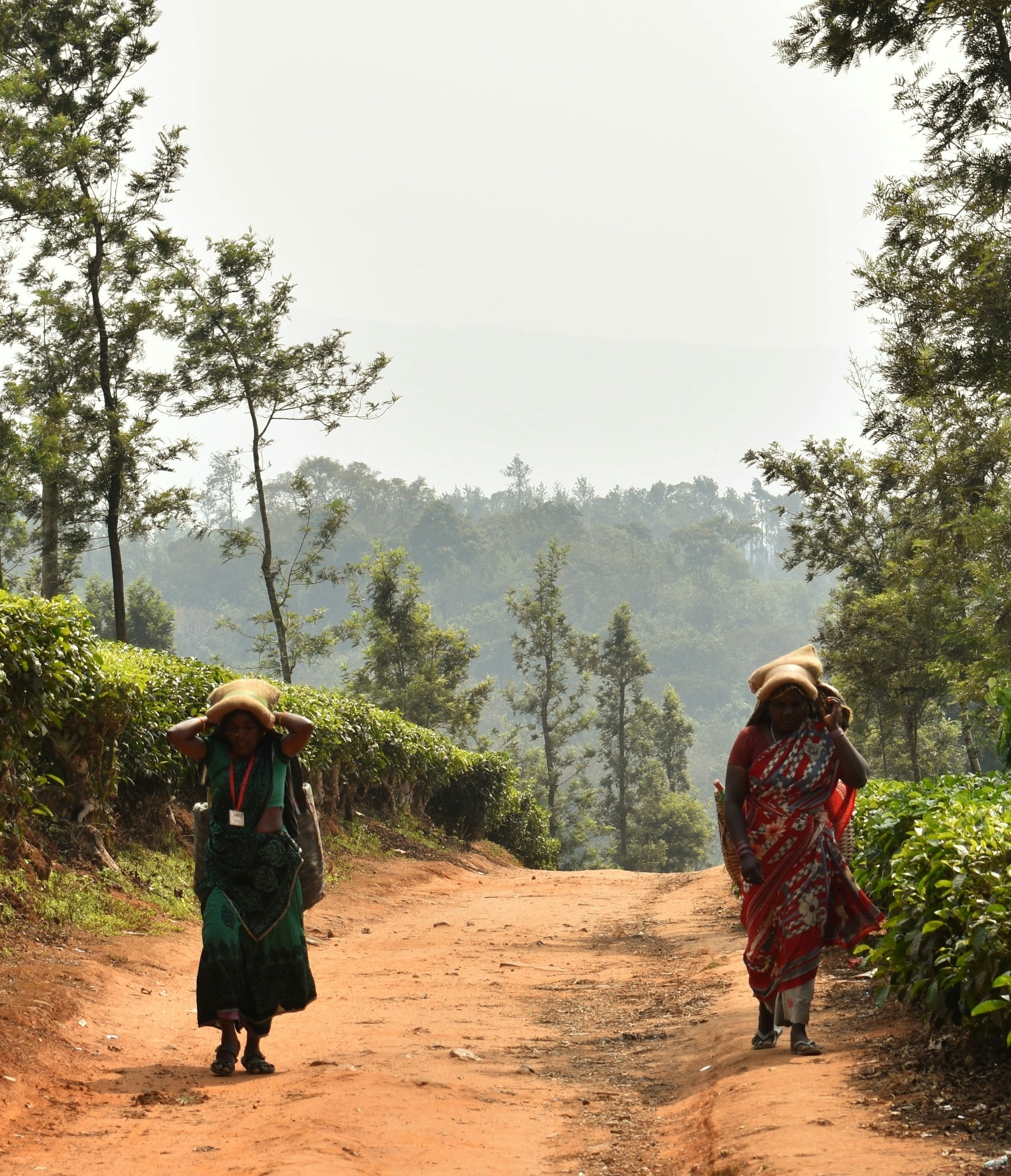
Read more . . .
Forest ecosystems are crucial to maintaining countless diverse but interconnected living systems and spaces that sustain people’s livelihoods, replenish water sources, and nurture biodiversity, which all combine to form important parts of a healthy environment.
Deforestation harms these connected systems because, in addition to causing the destruction of biodiversity, drying of water sources, and soil erosion, it also directly impacts forest communities and the healthy subsistence of humanity in general. This in turn creates new inequalities and exacerbates existing ones, including gender oppression, as people lose their primary means of livelihood, their territories, as well as the socio-cultural activities deeply linked to their forests. Often, women in all their diversity, children, youth, elders, people with disabilities and Afro-descendant communities are disproportionately affected by forest, biodiversity, and water loss given that their daily multiple roles, ethnic-racial relationships, practices, mental/physical health and agency depend on healthy forest ecosystems. Ultimately, forest loss leads to a disproportionate increase in women’s burden of work, both reproductive and productive, undermining their ability to effectively participate in decision-making processes.
GFC’s Gender Justice and Forests Campaign promotes redistributive justice actions to protect forest ecosystems and the rights of women in all their diversity, particularly Indigenous, rural peasant, Afro-descendant and ethnically diverse women, through developing strategic and technical policies, as well as campaign activities with our member groups to mainstream decolonial and transformative gender approaches.
The campaign’s strategic actions seek to contribute to dismantling oppressions and address the complex intersections of colonialism, patriarchy, racism, and other forms of violence in the context of forest conservation. Women’s access to decision-making, power, and control over resources is central to inclusive forest conservation, including equal access to tangible resources (land, water, seeds/biodiversity, and food) and intangible resources (knowledge, culture, history, etc), free from violence and the destruction of their environment and forest territories. We work with members to support reducing gender gaps in forest communities and engage men, youth, elders, and gender-diverse individuals in transforming power dynamics, ensuring that the agency and voices of women in the Global South are respected.

Locally-Led, Globally Impactful: COP30 Must Deliver for Tropical Forests
As COP30 approaches in Belém, the world faces a critical test: will global leaders finally deliver on promises to protect tropical forests and those who defend them? It is time for a bold shift—one that places power, funding, and decision-making in the hands of Indigenous Peoples and local communities.
Exploited Lands, Exploited Lives: Struggles for Forests, Life, and Gender Justice in the Global South
Forests are complex living ecosystems—homes,...
Locally-Led, Globally Impactful: COP30 Must Deliver for Tropical Forests
By Valentina Martínez (GFC), Eva Duarte Davidson...
Global Forest Coalition in Belém
Belém, Brazil | November 2025 The Global Forest...

